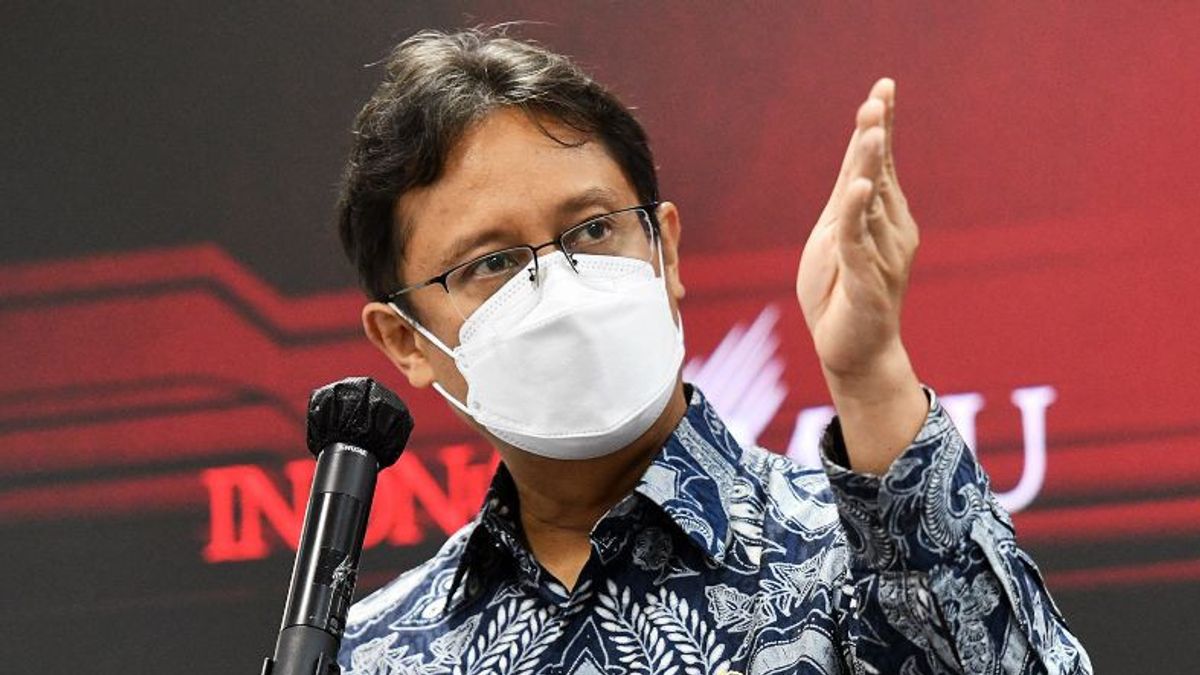JAKARTA - Minister of Health (Menkes) Budi Gunadi Sadikin targets that 50 percent of medicinal raw materials from the upstream to downstream sectors are available in the country. The effort is in order to reduce import dependence on pharmaceutical products.
"Our target is that 50 percent of the raw materials upstream to downstream, we try to be domestic. Who makes it? It's up to what is important in the country, so if there is another pandemic, we don't need to be busy looking for it from outside," said Budi in Cikarang, Bekasi Regency, West Java, quoted from Antara, Thursday, June 2.
Learning from the COVID-19 pandemic situation, Budi explained how difficult it was for Indonesia to obtain vaccines from a number of producing countries, such as India.
The Delta wave in July 2021 prompted health authorities in India to stop supplying vaccines to various countries, including Indonesia due to the high domestic demand in the country.
"Yesterday we were a bit stuck because the vaccine was made by the Serum Institute of India. Because he lacked vaccines, everything was blocked, he couldn't export. This caused a significant delay in the vaccination program in Indonesia and many people were affected and died as a result," he said.
Budi said the concept of a health security system is a policy that cannot be tolerated because it involves human life.
"We cannot tolerate it and we are willing to invest because it is very important regarding matters of life," he said.
Budi said that Indonesia has promising natural resources for the development of medicinal raw materials, but so far, around 90 percent of the demand is imported from abroad.
One of Indonesia's promising natural resources as raw materials for drugs is Petro Pharmaceutical products which can be developed for the manufacture of Paracetamol.
"That's homework as well as how to build the domestic petrochemical industry, so that the raw materials needed by the chemical-based pharmaceutical industry can be built," he said.
In addition to developing raw materials for petrochemical-based drugs, Budi also wants the domestic pharmaceutical industry to develop plasma-based drugs such as albumin, factor eight, immunoglobulin, gamaras and others.
"Indonesian people number 270 million, we should be the fourth largest producer of blood plasma in the world. The products that are widely used are still all imported. That's not true. There must be a mafia who doesn't want to build a factory here," he said.
The Ministry of Health also encourages the development of biosimilar-based drugs which are imitations of biologic drugs whose patents have expired. Its position is similar to that of generic drugs which are imitations of chemical drugs whose patents have expired, such as biologic drugs insulin, albumin, and interferon.
"We at the Ministry of Health will be even more aggressive in building the biotechnology drug industry, which is the sixth transformation of health transformation in Indonesia," he said.
To achieve this target, the Ministry of Health facilitated the Change Source for the Use of Domestic Raw Materials and the Inauguration of the Drug Raw Material Factory at PT Kimia Farma Sungwun Pharmachopia Delta Silicone 1 Lippo Cikarang, South Cikarang, today.
"With the Change Source, the Ministry of Health and BPOM's bureaucratic affairs will smooth out. It is hoped that later the consumption of medicinal raw materials can be made easier for pharmaceutical companies and BBOs that make this product," he said.
The English, Chinese, Japanese, Arabic, and French versions are automatically generated by the AI. So there may still be inaccuracies in translating, please always see Indonesian as our main language. (system supported by DigitalSiber.id)









